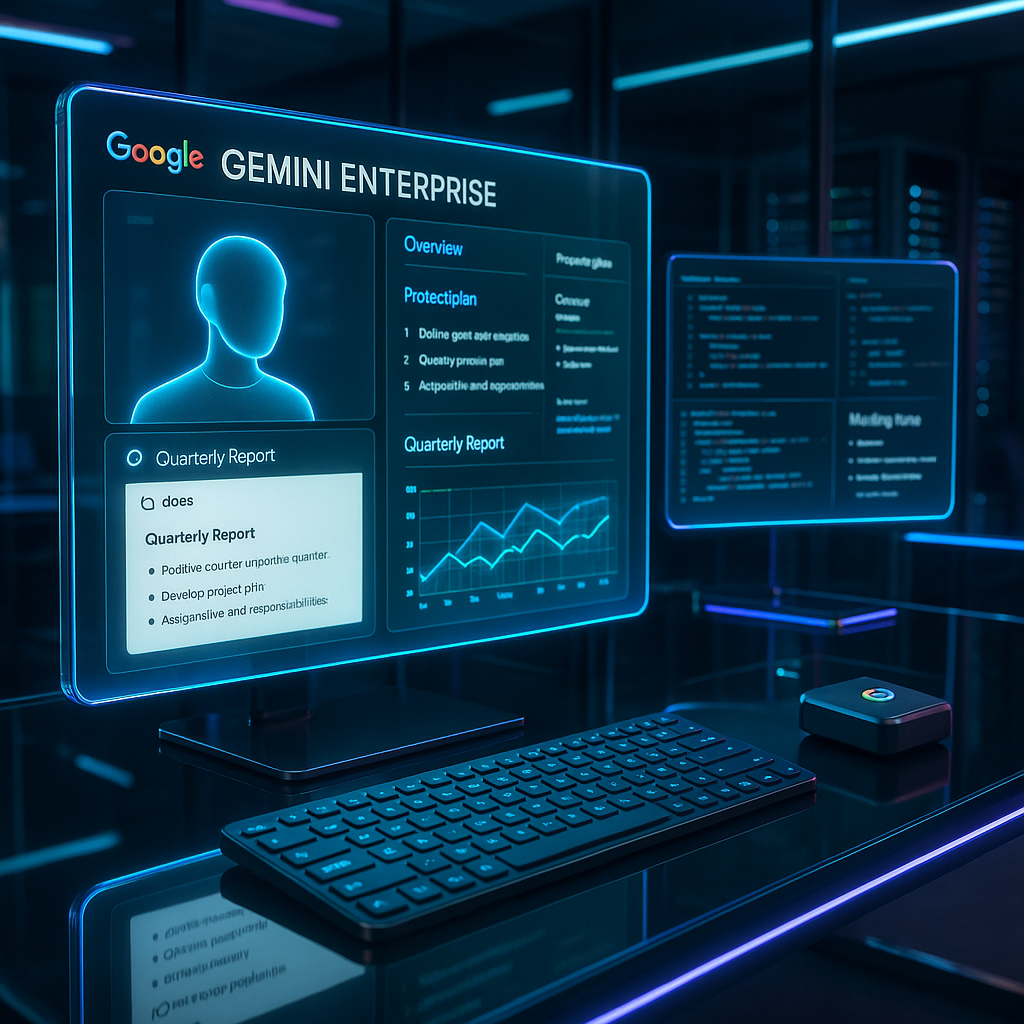Key Takeaways
- Top story: Google unveils Gemini Enterprise, a suite focused on reimagining workplace automation and creative collaboration.
- Stanford publishes its 2025 AI Index, highlighting rapid integration of artificial intelligence in education, finance, and health.
- Healthcare workers report challenges with AI adoption amid rising cyberattack risks, revealing tensions at the human-machine frontier.
- Elon Musk accuses OpenAI of covert lobbying efforts to block California’s proposed AI legislation.
- A central theme emerges: power brokers, professionals, and citizens are directly confronting AI’s accelerating role in society.
Below are the key developments and complex issues shaping today’s headlines.
Introduction
On 13 October 2025, Google’s launch of Gemini Enterprise marks a pivotal moment for workplace automation. This intensifies debates about the relationship between AI and society. As the Stanford 2025 AI Index documents rapid technological integration, this press review explores how power, policy, and human adaptation are becoming increasingly interconnected in the evolving artificial intelligence landscape.
Top Story
Google Unveils Gemini Enterprise to Transform Workplace Automation
Google has introduced Gemini Enterprise, a comprehensive suite designed to reshape workplace automation and creative collaboration. The company states that Gemini Enterprise leverages advanced natural language processing and multimodal AI to boost productivity in business settings.
Available as part of Google Cloud, Gemini Enterprise will offer customizable AI agents for project management, document creation, and real-time meeting assistance. Google said customers can expect enhanced data privacy and secure cloud integration as core features.
Stay Sharp. Stay Ahead.
Join our Telegram Channel for exclusive content, real insights,
engage with us and other members and get access to
insider updates, early news and top insights.
 Join the Channel
Join the Channel
Industry analysts noted the release could accelerate the adoption of purpose-built AI tools among large enterprises. Early testers from the finance and media sectors reported measurable gains in process efficiency.
Also Today
Stanford’s 2025 AI Index Highlights Rapid Integration Across Sectors
Stanford University published its 2025 AI Index, documenting expansive adoption of AI in education, finance, and healthcare. The report states that over 60 percent of Fortune 500 companies now deploy AI-enabled systems in core operations.
Education remains a focal point, with state boards debating appropriate boundaries for AI tools in classrooms. The Index also identifies persistent concerns about transparency and assessment integrity in AI-driven learning environments.
In the financial sector, automation is credited with streamlining compliance and fraud detection processes. However, the Index points out emerging concerns regarding algorithmic bias and workforce dislocation.
Healthcare Workers Face Pressure Amid AI Adoption and Cyberattacks
Healthcare systems in the United States are reporting significant resistance among staff to new AI diagnostic tools. A recent survey found two-thirds of providers worried about liability and patient trust.
At Johns Hopkins Medical Center, leaders paused rollout of a high-profile imaging analysis program pending additional validation studies. Dr. Robert Martinez, Chief of Radiology, stated that balancing innovation with patient care remains their central priority.
Recent cyberattacks targeting hospital systems have heightened staff anxieties, underscoring the need for robust security measures alongside AI integration.
Elon Musk Accuses OpenAI of Lobbying Against California Legislation
Elon Musk has publicly accused OpenAI of covertly lobbying against California’s proposed AI bill designed to regulate the technology’s development. Musk characterized the efforts as an attempt to stifle oversight that prioritizes public interest.
OpenAI has not issued a formal response. Lawmakers leading the bill emphasized their commitment to transparent debate on the regulation of commercial AI applications.
Also Today
Global Regulatory Initiatives and Industry Standards Expand
The G7 nations announced yesterday the creation of a joint task force dedicated to AI regulation, building on the Hiroshima AI Governance Accord. The group aims to develop common standards for AI development and deployment by March 2026.
European Parliament committees advanced broad AI liability legislation, proposing new corporate responsibilities for AI-related harm. The legislative package includes mandatory impact assessments for high-risk AI applications.
The Global AI Standards Coalition expanded its membership by welcoming 50 new companies, including major firms from Asia and Latin America. Organizers stated the move signals growing private-sector support for voluntary oversight.
What to Watch
- 15 October 2025: UN General Assembly Special Session on AI Governance
- 18 October 2025: Microsoft AI Ethics Board restructuring announcement
- 21 October 2025: European Parliament final vote on AI Act amendments
- 25 October 2025: G7 AI Task Force inaugural meeting in Brussels
- 30 October 2025: Global AI Standards Coalition quarterly framework review
Conclusion
The introduction of Google’s Gemini Enterprise and the release of Stanford’s 2025 AI Index reinforce that AI integration is reshaping industries and challenging established norms. Ongoing resignations, policy debates, and regulatory initiatives underscore the importance of balanced oversight as artificial intelligence becomes deeply embedded in society. What to watch: October brings several pivotal events in global AI governance, including sessions at the United Nations, a key EU Parliament vote, and the G7 task force launch.





Leave a Reply